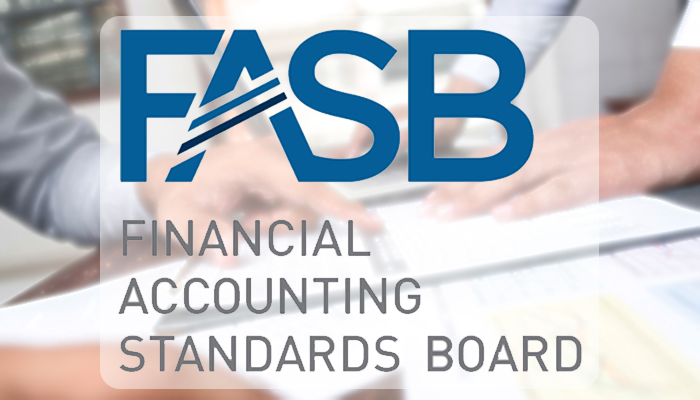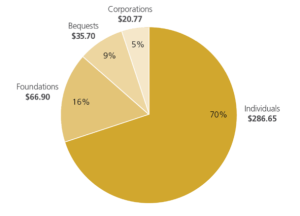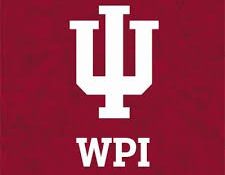The Financial Accounting Standards Board (FASB) wants to improve and clarify guidance on revenue recognition of grants and contracts by nonprofits and is seeking comments and guidance on the topic.
According to FASB, stakeholders have indicated that there is difficulty and diversity in practice. This diversity is most prevalent with government grants and contracts. Different interpretations can affect the timing of revenue recognized.
FASB issued a proposed Accounting Standards Update (ASU), titled Clarifying the Scope and Accounting Guidance for Contributions Received and Contributions Made. The comment period ends November 1.
The proposed ASU is intended to assist in distinguishing between contributions (nonreciprocal transactions) and exchange (reciprocal) transactions, and conditional and unconditional contributions. The proposed ASU guidance could result in more grants and contracts being accounted for as contributions.
Under the proposed framework, if a grant is determined to be an exchange transaction the revenue should be recorded in accordance with Revenue from Contracts with Customers (Topic 606) or other applicable topics. A grant determined to be a contribution should be recognized as revenue in accordance with Not-for-Profit Entities – Revenue Recognition (Subtopic 958-605).
Each grant would need to be evaluated individually. The first step is to determine whether the grant is a contribution or an exchange transaction. A grant is considered to be an exchange transaction if the grantor receives commensurate value in return for the resources provided. Grantors, such as private foundations or government agencies, are not synonymous with the general public, and neither the indirect benefit received by the public nor the positive sentiment from acting as a donor qualifies as commensurate value to the grantor. If the general public is receiving the primary benefit, then the transaction is deemed a contribution.
- The ASU contains examples to assist in distinguishing contributions from exchange transactions. If the transaction is determined to be a contribution, Subtopic 958-605 requires an organization to determine whether it is conditional or unconditional, which affects the timing of revenue recognized. The proposed ASU states that a contribution is considered conditional on the basis of whether the agreement includes:
- A donor-imposed stipulation that represents a barrier that must be overcome; and,
- Either a right of return of the assets, or a right of release of the grantor from its obligation.
Keep in mind that the agreement must have both a barrier and a right of return. If it does not have both, then the contribution would be unconditional.
A conditional contribution is not recognized as revenue until the barrier has been overcome and the recipient organization is entitled to the funds. No single factor determines whether a contribution is conditional. The ASU includes a table with a list of indicators that is helpful in determining whether an agreement contains a barrier.
- Certain indicators would include:
- The agreement includes measurable performance related goals, such as: A specified level of service (serving a specific number of meals per week in a soup kitchen); A specific output or outcome (a decline in symptoms of malnutrition after providing meals); Matching (the grantor identifies a ratio or amount of matching contributions to be obtained); and, Outside event (funds to be awarded if an organization’s net worth reaches a specified level);
- A stipulation that is related to the purpose of the agreement. Administrative tasks and trivial stipulations would be excluded. (A requirement to file an annual report, for example, could be considered an administrative requirement and not a condition);
- A stipulation limits discretion by the recipient over how the funds should be spent (the requirement that a recipient must follow specific guidelines about qualifying expenses in compliance with principles issued by the federal Office of Management and Budget); and,
- Additional actions that would be required to be taken by the recipient organization in addition to the activities that it would normally pursue
The ASU states that in cases of ambiguous donor stipulations, a contribution containing stipulations that are not clearly unconditional shall be presumed to be a conditional contribution.
An unconditional contribution is recognized as revenue when it is promised. After a contribution has been deemed unconditional, the organization must determine whether the contribution is restricted by the donor for a specific purpose or to a specific time period.
Certain grants might be determined to be contracts with customers and therefore, subject to revenue recognition rules under Topic 606. However, Topic 606 is not yet effective. Therefore, the effective date of the amendments in this proposed update will be the same as the effective date of Topic 606.
Most organizations would be required to adopt the amendments during calendar years ending December 31, 2019 or fiscal years ending in 2020. However, organizations that have issued or are a conduit bond obligator would need to apply these amendments a year earlier.
The amendments would be applied on a modified prospective basis. Agreements that are not completed or are entered into after the effective date would be subject to the amendments. Agreements that have been completed (i.e. revenue has been recognized) would not be affected.
No prior period results would be restated, and there would be no cumulative effect to the opening balances of net assets. An organization would be required to disclose the nature and reason for the accounting change and an explanation of the reasons for significant changes to each financial statement line item.
Patricia McGowan is a partner in the Hartford, Conn., office of CohnReznick LLP. Her email is [email protected] and Catherine Syslo is a director in the Roseland, N.J., office of CohnReznick LLP. Her email is [email protected]












